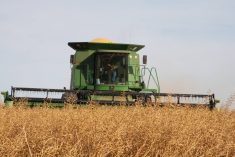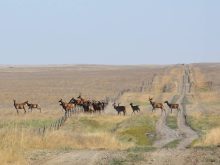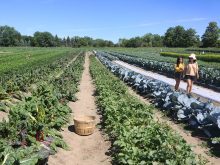Manitoba agriculture minister Rosann Wowchuk was criticized for not attending a hog industry rally but did deliver financial assistance for the province’s hog producers last week.
Wowchuk and federal agriculture minister Gerry Ritz announced June 25 that Manitoba producers would have access to $37 million in funding through a targeted advance payment from the Agri-Stability program.
“In response to industry requests, this federal-provincial program has been implemented to address urgent issues and this advance will provide immediate financial assistance when producers need it most,” Wowchuk said in a news release.
Read Also

New program aims to support plant-based exports to Asia
Understanding the preferences of consumers in Taiwan and how they differ from Indonesia or Malaysia isn’t easy for a small company in Saskatchewan.
However, the release also noted that only 277 eligible hog producers could tap into the Agri-Stability funding, which concerns Karl Kynoch, chair of the Manitoba Pork Council.
“Anytime we can put some cash into producer’s hands, it’s going to be helpful. But the problem is with it, is it’s only going to help a small number of the producers…. It might only help roughly a third of the producers.”
That’s because many hog producers have diversified operations and risk management programs like Agri-Stability don’t work well for them. It’s also a margin program, which isn’t effective when hog farmers have lost money for several years.
“A lot of producers have lost all their reference margins,” Kynoch said.
Reducing municipal taxes on hog barns would help producers, said Mike Teillet, manager of sustainable development programs for Manitoba Pork.
Hog barn values have dropped dramatically in the province. Consequently, farmers should be paying much less in property taxes.
“You’re talking about values in the millions of dollars when things are right, and now they’ve dropped down in some cases into the hundreds of thousands of dollars,” he said.
Kynoch supports the idea of lowering taxes, which are particularly harmful to producers who have cut the size of their hog operations.
“We’re running into where producers have empty barns because they’ve lost their markets, and they have no way to make payments. And yet the tax assessments on barns are very high.”

















